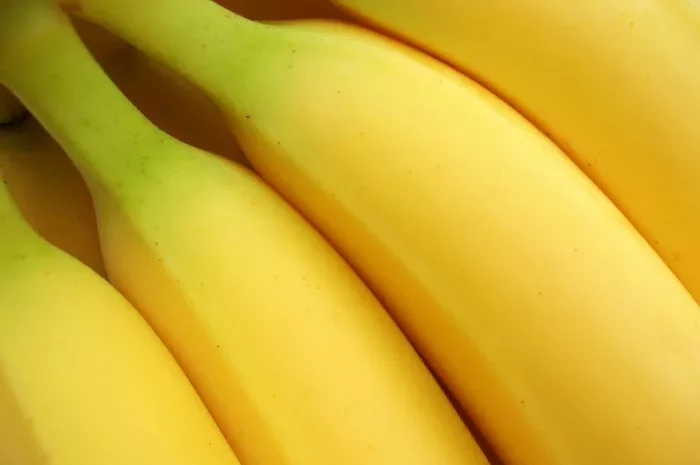Insulin resistance is a condition in which the body’s cells become less responsive to insulin, a hormone that regulates blood sugar levels. This reduced sensitivity can lead to elevated blood glucose levels and eventually contribute to the development of type 2 diabetes. Managing insulin resistance typically involves lifestyle modifications, including dietary changes. Among various dietary options, bananas often come up in discussions about their suitability for individuals with insulin resistance. This article examines whether bananas are beneficial for managing insulin resistance, considering their nutritional profile, effects on blood sugar levels, and overall impact on metabolic health.
Understanding Insulin Resistance
Insulin resistance occurs when the body’s cells do not respond effectively to insulin, which is necessary for glucose uptake from the bloodstream. This inefficiency leads to higher blood glucose levels, prompting the pancreas to produce more insulin. Over time, this can strain the pancreas and potentially lead to type 2 diabetes.
Several factors contribute to insulin resistance, including:
Genetics: Family history of diabetes can increase risk.
Obesity: Excess fat, particularly visceral fat around the abdomen, can impair insulin sensitivity.
Physical Inactivity: Sedentary lifestyles are linked to reduced insulin sensitivity.
Diet: High intake of refined carbohydrates, sugars, and unhealthy fats can contribute to insulin resistance.
Effective management of insulin resistance involves improving insulin sensitivity through a combination of lifestyle changes, including dietary adjustments, regular physical activity, and weight management.
Nutritional Profile of Bananas
Bananas are a popular fruit known for their sweet taste and convenience. They are rich in several essential nutrients, including:
Carbohydrates: A medium banana contains approximately 27 grams of carbohydrates, primarily in the form of natural sugars and dietary fiber.
Fiber: Bananas provide about 3 grams of dietary fiber per medium fruit, which includes soluble fiber in the form of pectin.
Vitamins: They are a good source of vitamin C, vitamin B6, and folate.
Minerals: Bananas are rich in potassium, which is crucial for maintaining cardiovascular health and proper muscle function.
Given their carbohydrate content and natural sugars, it is important to evaluate how bananas affect blood sugar levels and insulin sensitivity, particularly for individuals with insulin resistance.
The Glycemic Index of Bananas
The glycemic index (GI) is a measure of how quickly a food raises blood glucose levels compared to pure glucose. Foods with a high GI are rapidly absorbed and can cause spikes in blood sugar, while foods with a low GI have a slower, more gradual effect.
Bananas have a moderate glycemic index, typically ranging between 50 and 60, depending on their ripeness. Riper bananas tend to have a higher GI due to the conversion of starches into simpler sugars. However, their moderate GI indicates that they cause a slower increase in blood glucose compared to high GI foods like white bread or sugary snacks.
The Role of Dietary Fiber in Blood Sugar Regulation
Dietary fiber plays a crucial role in managing blood sugar levels. It slows down the digestion and absorption of carbohydrates, which helps to prevent rapid spikes in blood glucose. Bananas are a good source of dietary fiber, particularly soluble fiber.
Soluble Fiber:
Pectin: The predominant soluble fiber in bananas is pectin, which has been shown to slow gastric emptying and reduce the rate of glucose absorption. This can help in stabilizing blood sugar levels and improving insulin sensitivity.
Impact on Satiety:
Feeling Full: The fiber in bananas can also promote satiety, which can be beneficial for weight management. Maintaining a healthy weight is important for improving insulin sensitivity and managing insulin resistance.
Bananas and Their Effect on Insulin Sensitivity
The impact of bananas on insulin sensitivity can be influenced by several factors, including portion size, ripeness, and overall diet composition.
Portion Control:
Moderation: Eating bananas in moderation is key. A single medium banana can be part of a balanced diet that includes other low-GI foods. Overconsumption of any carbohydrate-rich food, including bananas, can lead to increased blood sugar levels, which may counteract the benefits of fiber.
Ripeness and Carbohydrate Content:
Ripeness: As bananas ripen, their starch content decreases and their sugar content increases. This results in a higher glycemic index and potentially a more significant impact on blood sugar levels. Choosing less ripe bananas may help minimize their effect on blood glucose levels.
Overall Diet Composition:
Balanced Diet: Incorporating bananas as part of a balanced diet that includes protein, healthy fats, and other fiber-rich foods can help mitigate any potential blood sugar spikes. Combining bananas with a source of protein or fat, such as yogurt or nuts, can further slow down the digestion of carbohydrates and improve glycemic control.
Research and Evidence on Bananas and Insulin Resistance
Several studies have investigated the effects of bananas and their components on blood glucose levels and insulin sensitivity. While research specifically focused on bananas and insulin resistance is limited, related studies provide useful insights.
Banana Fiber and Glycemic Control:
Study Findings: Research has shown that soluble fibers, such as those found in bananas, can improve glycemic control and insulin sensitivity. In particular, pectin has been found to have beneficial effects on glucose metabolism and insulin sensitivity.
Banana Consumption and Weight Management:
Impact on Weight: Some studies suggest that consuming bananas can aid in weight management due to their high fiber content, which contributes to feelings of fullness and reduced overall calorie intake. Effective weight management is crucial for improving insulin sensitivity and managing insulin resistance.
Long-Term Health Benefits:
Metabolic Health: Regular consumption of fruits like bananas, as part of a diverse and balanced diet, has been associated with improved overall metabolic health. The nutrients and fiber in bananas contribute to cardiovascular health, which is closely linked to insulin sensitivity.
Practical Recommendations for Including Bananas in the Diet
For individuals with insulin resistance, incorporating bananas into the diet can be beneficial if done mindfully. Here are some practical recommendations:
Choose Moderation:
Portion Size: Stick to a small to medium-sized banana and monitor blood sugar levels to ensure they remain stable. Avoid consuming multiple bananas in one sitting.
Pair with Protein or Fat:
Balanced Meals: Combine bananas with a source of protein or healthy fat, such as Greek yogurt, nuts, or seeds. This can help slow down the digestion of carbohydrates and stabilize blood sugar levels.
Opt for Less Ripe Bananas:
Ripeness: Choose slightly less ripe bananas to reduce their glycemic impact. Less ripe bananas have a higher starch content, which may result in a lower glycemic index.
Monitor Blood Sugar Levels:
Individual Response: Monitor how bananas affect your blood sugar levels and adjust your intake as needed. Everyone’s response to foods can vary, so personalized monitoring is essential.
Incorporate into a Balanced Diet:
Overall Diet: Ensure that bananas are part of a balanced diet that includes a variety of fruits, vegetables, whole grains, lean proteins, and healthy fats. A well-rounded diet supports overall metabolic health and improves insulin sensitivity.
See also: How Insulin Resistance Affects Blood Sugar Levels
Conclusion
Bananas can be a nutritious and beneficial part of a diet for individuals with insulin resistance when consumed in moderation and as part of a balanced meal plan. Their moderate glycemic index, high fiber content, and essential nutrients can contribute positively to blood sugar regulation and overall metabolic health. However, it is important to consider factors such as ripeness, portion size, and overall dietary context to maximize the benefits of bananas while managing insulin resistance effectively.
As with any dietary decision, individuals with insulin resistance should work with healthcare professionals, such as registered dietitians or endocrinologists, to develop a personalized nutrition plan that aligns with their specific health needs and goals. By incorporating bananas thoughtfully and maintaining a balanced diet, individuals can support better glycemic control and overall health.
Related topics:
What Is the Best Treatment for Insulin Resistance?

























